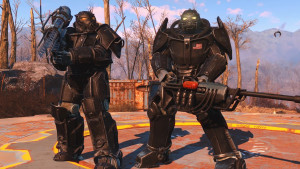Please support Game Informer. Print magazine subscriptions are less than $2 per issue
Judge Determines NCAA Rules Against Athletes Likeness Revenue Are Unlawful

Earlier today a federal judge ruled that the NCAA's rules that prohibit college athletes from getting compensated for the use of their likeness in media broadcasts, video games, and other products actually violate antitrust laws.
Sports gamers are likely already familiar with this issue and with EA's lawsuit against the NCAA over the use of College athlete likenesses. That lawsuit ended in a settlement, but that's not the end of the story.
U.S. District Judge Claudia Wilken issued an injunction that prevents the NCAA from enforcing its rules and bylaws that prohibit sports athletes from earning revenue from the use of their names, images, and likenesses. This ruling doesn’t prevent the NCAA from capping the amount of money a player can earn, but the NCAA does have to provide players with compensation equal to the cost of their schooling. Colleges could also deposit revenue into a trust that would not pay out until a player graduates.
The NCAA's old rules previously prevented players from receiving compensation for appearing in EA’s NCAA game series, but under these new laws, EA could theoretically work out a deal to develop the game again, but EA will have to acquire the right to use player's likeness again, and we don't know if the NCAA is willing to work with EA at this point.
Chief legal officer for the NCAA Donald Remy released a statement that said, "We disagree with the Court's decision that NCAA rules violate antitrust laws. We note that the Court's decision sets limits on compensation, but are reviewing the full decision and will provide further comment later."
The NCAA could appeal the ruling, but that would not effect this injunction. The new ruling will take effect at the beginning of the next recruiting cycle for football and basketball and does not affect players recruited before July 1, 2016.
[Source: CBS News via Polygon]
Our Take
This issue lead EA to halt production of its NCAA franchise, but just because the laws have now changed doesn't mean that EA will immediately start producing the game again. If EA has to compensate each player that will likely increase the licensing fees for the NCAA and in turn the development costs of the game, read more about this issue here.










